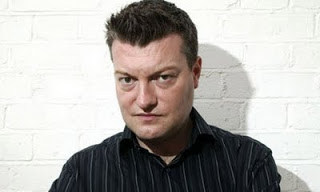
A Perfectly Clean and Tidy House is one of those ideas that’s wonderful in principle, rather like Communism, but in practice leads to wars, revolutions, purges and gulags. But I must be true to the Cause, unless I want to find myself in the marital equivalent of Siberia.
After all, you are fighting the very forces of Entropy, which if certain scientists are to be believed, will one day bring the entire universe to the point of heat death. Heath death will be rather like the cold layer of gunk at the bottom of the sink after everything has drained away, only on a universal scale. This rather puts making sure the bed sheets are on straight into perspective.
But the quest for a well-ordered house is not in fact a gesture of cosmic futility. As Dave mentioned in his address, neither scientists or entropy will have the last word. The Bible tells us that creation itself will be liberated from its bondage to decay. Jesus’ resurrection is the proof that death is not the end; death will itself one day die. God isn’t just saving our souls, but all of creation.
I have just recently reread Perelandra by C S Lewis, which everyone should do regularly, if you ask me, since Perelandra is possibly my favourite novel by Lewis. The hero Ransom, while fighting the Unman on Venus, is haunted by what Lewis calls “the Empirical Bogey”, and its to this that Brooker has fallen prey:
…the great myth of our century with its gases and galaxies, its light years and evolutions, its nightmare perspectives of simple arithmetic in which everything that can possibly hold significance for the mind becomes the mere by-product of essential disorder. Always till now he had belittled it, had treated with a certain disdain its flat superlatives, its clownish amazement that different things should be of different sizes, its glib munificence of ciphers…
Part of him still knew that the size of a thing is the least important characteristic, that the material universe derived from the comparing and mythopoeic power within him that very majesty before which he was now asked to abase himself, and that mere numbers could not overawe us unless we lent them, from our own resources, that awfulness which they themselves could no more supply than a banker’s ledge. But this knowledge remained an abstraction. Mere bigness and loneliness overbore him.
In the last chapter of the book, we are given a dazzling description of the Great Dance of the cosmos, a joyful affirmation of the significance of the universe as it merrily unfolds before the great Maleldil. It is brilliantly written, verging on poetry, and a great answer to those who “add years to year, or miles to miles and galaxies to galaxies, in lumpish aggregation”.

